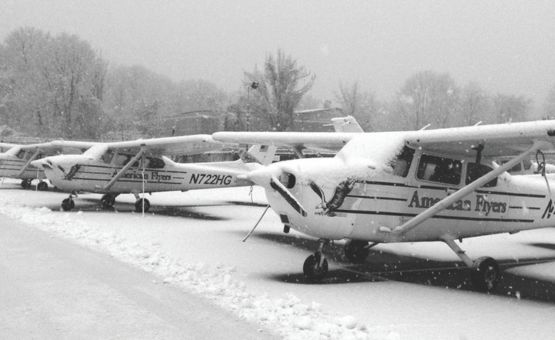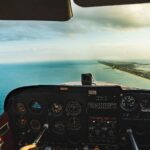By Rick Farmer
As we transition from the cold, snowy winters to the sweltering summer heat that most of the country is experiencing this year, apart of answering the question, “how to become a commercial pilot”, you should know that our air-cooled heat-producing power plants are feeling it as well.
This increase in air temperature causes a decrease in air density which also affects our fuel/air mixture settings in our carburetors and fuel servos. Fuel delivery system manufacturers recommend that mechanics adjust the fuel/air mixture settings at least twice per year to compensate for these seasonal changes in air temperature (density).
This equates to richer than normal mixture settings in the summer (less air in a fuel/air mixture = more fuel and a richer mixture) and can cause rough running engines, difficult restarts and an increase in fuel consumption. The opposite holds true for the winter months when cooler, denser air causes the mixture to run lean. This results in an engine that will stumble when the throttle is advanced and cause higher than normal cylinder head temperatures (CHT) during the flight due to less fuel being used to keep the cylinders cool. This can cause unnecessary stress to the cylinders and valves and greatly reduce their lifespan. There’s an old saying among A&P mechanics regarding the three things that will affect how long an aircraft engine will last: first: temperature, second: temperature, and third temperature!
An indication of an excessively lean mixture is an engine backfire which is when the fuel/air mixture quickly ignites backward through the intake. This is not to be confused with an afterfire which is when the fuel-air mixture continues to burn after the power stroke of the engine and continues through the exhaust stroke. An indication of an afterfire is a loud pop when the fuel-air mixture ignites through the exhaust.
Paying attention to the performance, sound and “feel” of your aircraft’s engine is an important step to becoming a proficient pilot. If you experience either of these conditions or notice a change from how the engine usually performs, you should notify your mechanic right away so he can determine the cause and make the necessary adjustments.










